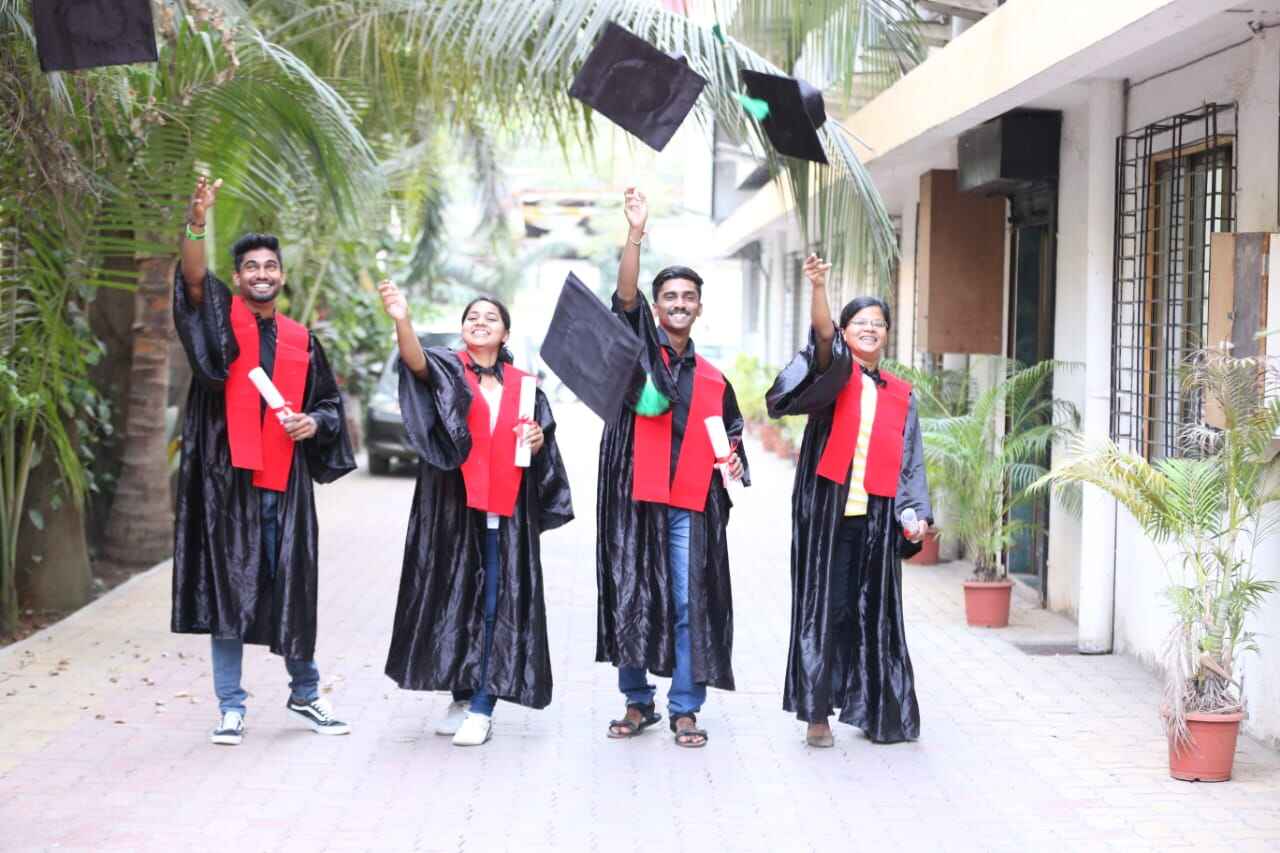“We face more challenges than solutions when we talk about skilling the youth. What young people require is a set of essential skills that can be applied across roles.”
An individual’s talent and skill will determine their productivity and progress. They are needed for individuals to perform their tasks effectively and efficiently. When the right skillset is combined with other external factors, every individual can work in tandem to combat unemployment and contribute to community development. By skilling the youth, we can directly contribute to their own upliftment and that of their community.
According to UN estimates, youth are nearly three times more likely than other adults to be unemployed. This could be due to being exposed to low-quality jobs, increased labour market inequities, and longer and more unstable school-to-work transitions. This was further exacerbated during the global pandemic, wherein the youth were cut off from decent education and job possibilities as economic activity plummeted.
According to the independent economic data organisation, CMIE, the age group of 25-29 had the highest Labour Participation Rate of 61.87 percent with an unemployment rate of 12.86 percent in the last quarter, September-December 2022. The same report quoted a labour participation rate in urban and rural India as 37.8 percent and 40.4 percent respectively, implying that 60 percent of the Indian population was not a part of the labour force. These reasons make it critical to assist the youth in gaining access to training and skill development opportunities through government and private efforts.
Individuals aged 45 and older are often perceived to be the least desirable cohort in terms of skills, readiness for training, and ability to fit in. They are not aware of the latest technologies and are falling behind in the skills that are called for in the workforce today. Multiple jobs from the past two decades have now become obsolete, so reskilling for retaining jobs becomes essential; however the opportunities to do so are few and far between.
According to a survey published in the World Economic Forum, ‘The Future of Jobs Report 2020’ the number of jobs destroyed will be surpassed by the number of ‘jobs of tomorrow’. The only way to continue being a part of the jobs of tomorrow is through reskilling and upskilling.
We have seen multiple jobs change their course entirely over the past few years. Modern jobs often require employees to adapt to technology and widen their learning curve to understand and work in a changing environment. Middle-aged Indians above the age of 45 that want to work must unlearn their previous ways to reskill for modern employment.
Initiatives driven by private organisations that can help bridge this gap, can bring these out of job individuals back into the workforce and revive their source of livelihood and create a veritable difference to their quality of life.
How can CSR help bridge the learning gap and contribute to skill development?
Corporate Social Responsibility (CSR) was thrust to the forefront of Indian legislation about eight years ago. Since then, the Indian business landscape has shifted towards more responsibility. With CSR serving as a leading indicator of how stakeholders expect organisations to function, organisations with significant CSR initiatives have a favourable market reputation, reflecting its values on the bottom line.
As stated earlier, most of the contributing part of our population, the youth, are unemployed. There is an urgent need to improve youth skill levels and turn this demographic challenge into a demographic dividend. We are at a crossroads with chances and prospects for the government and businesses to work together to grow and support future generations. Closing gaps in impoverished students’ educational journeys and developing an upskilled workforce will go a long way toward helping improve the quality of life they enjoy and enhance their standard of living.
Companies focus on skilling the youth from rural families
Skilling takes a back seat in many rural households, as most rural families have ‘white collar’ aspirations for their children. However, according to the World Bank, the vocational education stream in India enrolls less than 3 percent of students at the upper secondary level. This is often due to a lack of qualified trainers, shortcomings in training programmes, and an emphasis on academics rather than vocational training impedes skill development. Most training institutes are located in nearby small towns, making them inaccessible to most people, due to a lack of public transportation or ease of connectivity.
Primary education is at the heart of skilling
The National Education Policy 2020 (NEP 2020) is a step in the right direction because it intends to address young skill development in order to prepare a workforce for the future. Focusing on vocational training will allow students to thrive in areas of interest and harness their potential to fully contribute to their own development and progress. While the NEP 2020 is being implemented, there is a need to address skilling and training for the young people as well as reskilling individuals whose jobs are rapidly becoming irrelevant in the modern world.
Given the surge of digitization in India, remote and virtual-mode learning must be used to reach out to individuals in semi-urban and rural India to provide skilling possibilities. This can help enhance talent and aid in providing access to work prospects, resulting in community development and growth. Skilling young graduates who lack the skills required for the job market, as well as upskilling individuals wishing to change industries or advance in their current field, will significantly improve the quality of the workforce.
Changing mindsets is required to alter the narrative
Soft skills, entrepreneurial, financial, and digital literacy are equally important in the government’s skill development initiatives. Women are also encouraged to pursue training in traditionally male-dominated occupations such as mechanics, automation, welding, and security.
According to CMIE, the 30-day moving average unemployment rate is 7.1 percent at the time of writing this article. Some of these might be unemployed due to their growing age and lack of skills to actively participate in the changing workforce. Despite their age group, individuals need to skill, upskill and reskill themselves to be open to different opportunities.
Closing the gender gap, focusing on quality education, developing better employment prospects, and imparting appropriate skills should continue to be essential to ensure sustained growth within our communities and as a result contribute to the economic growth of the nation.
Looking forward
Core employability skills have the potential to impact the skilling space and create the workforce for many types of occupations at speed and scale in the existing ecosystem, where quality workforce is a big challenge. Investing in required fundamental employable skills is a prudent investment for India’s young workers instead of the supply driven skilling focus which is currently prevalent. Switching over to skilling for jobs that are present and open in the market makes for a better skill-job fit and ensures more individuals are employable in the society.
Views of the author are personal and do not necessarily represent the website’s views.


